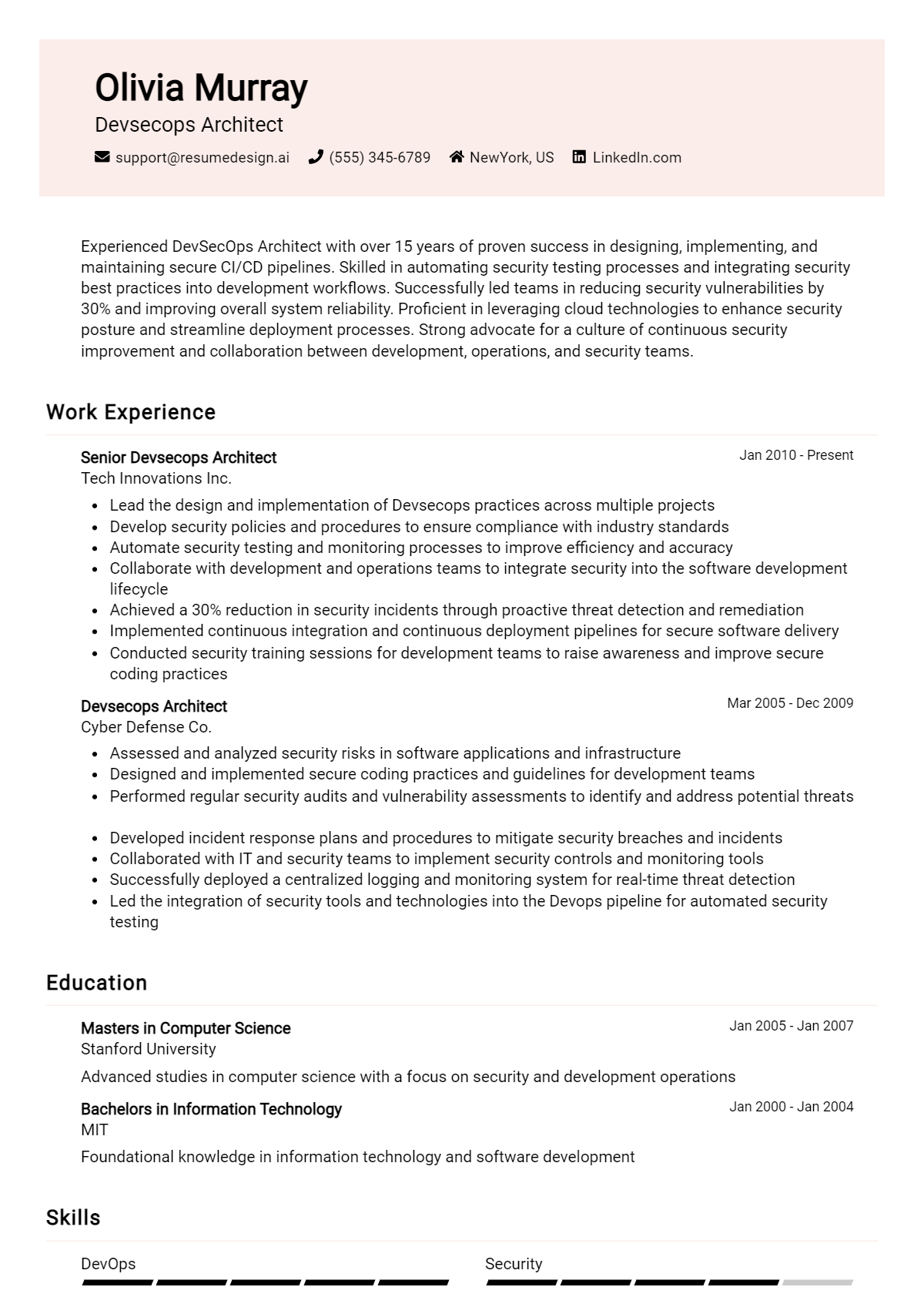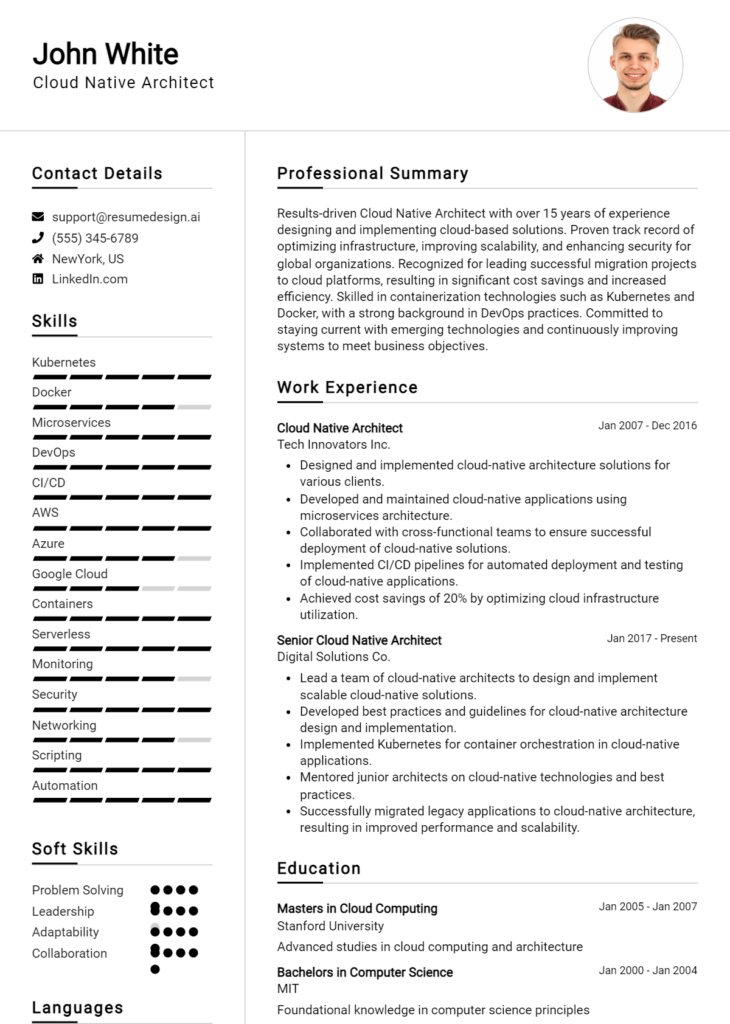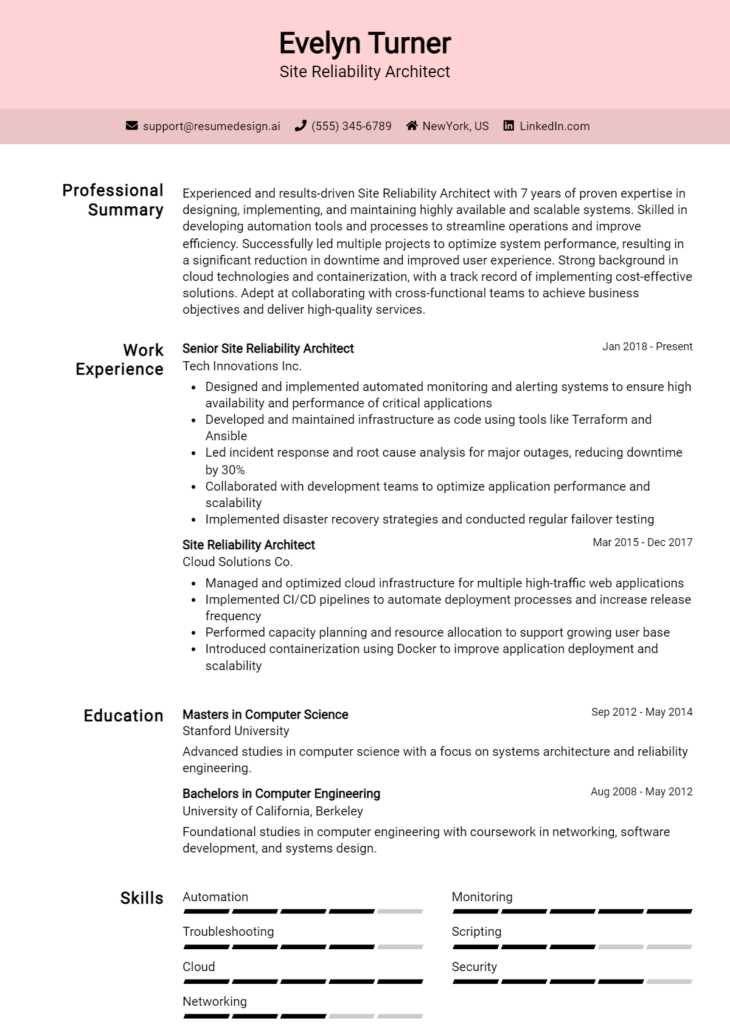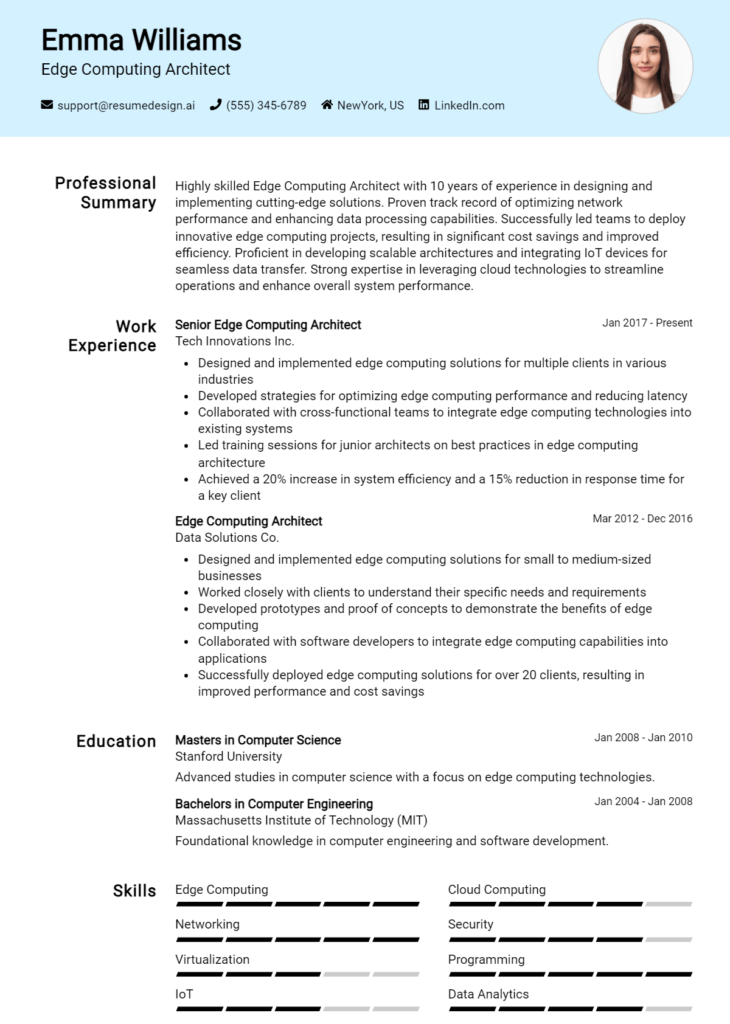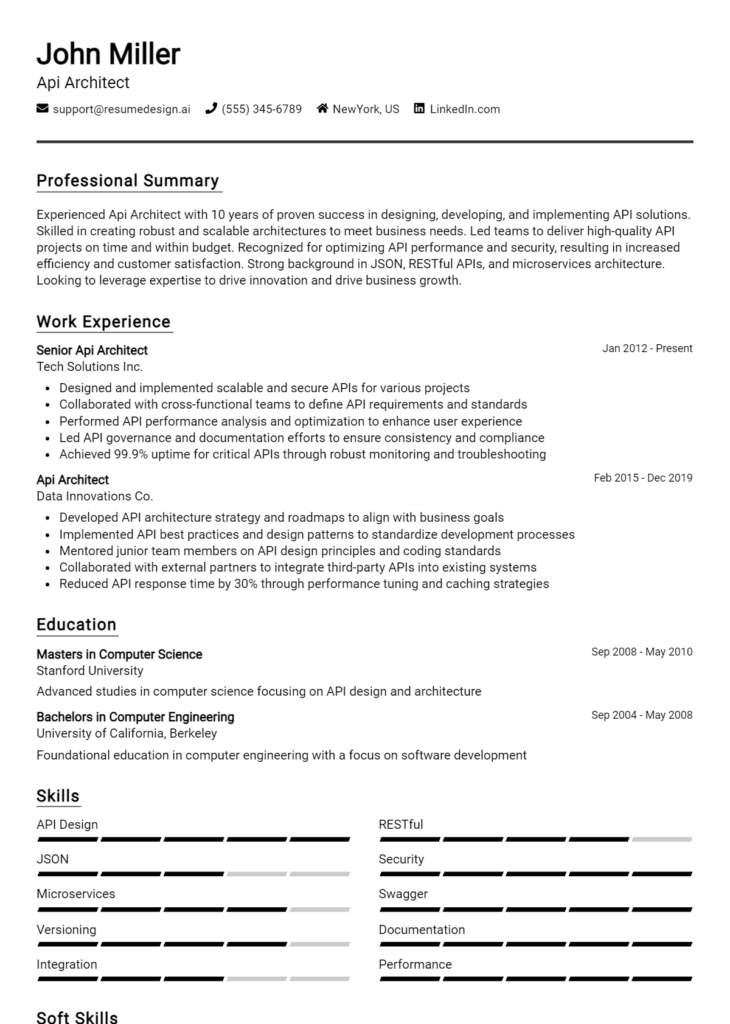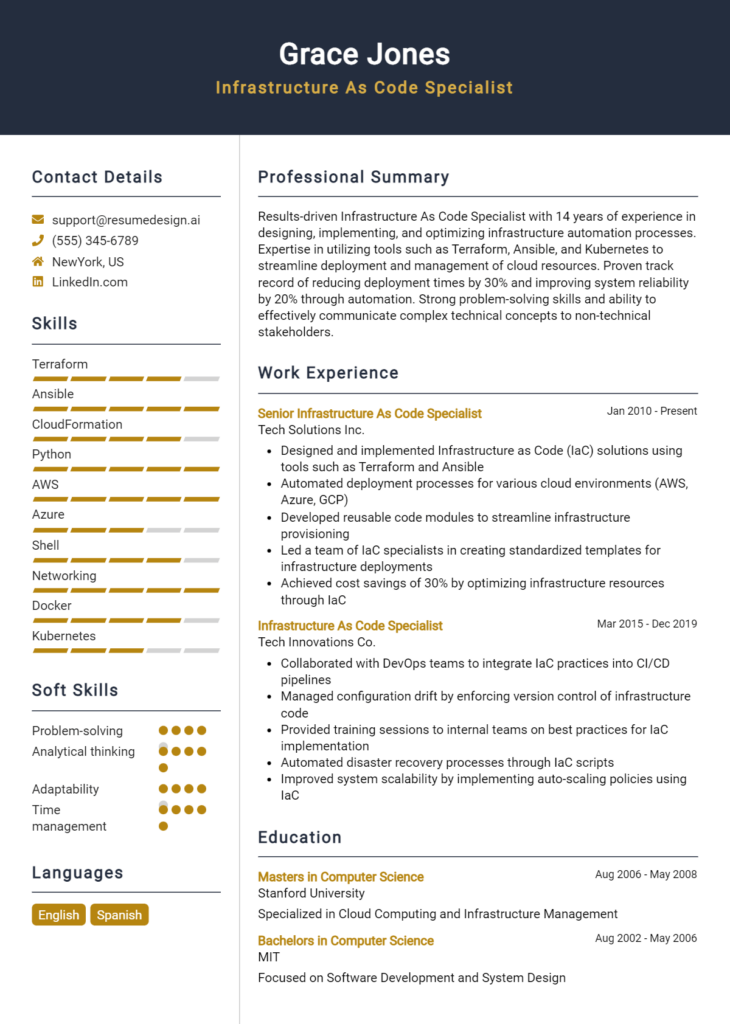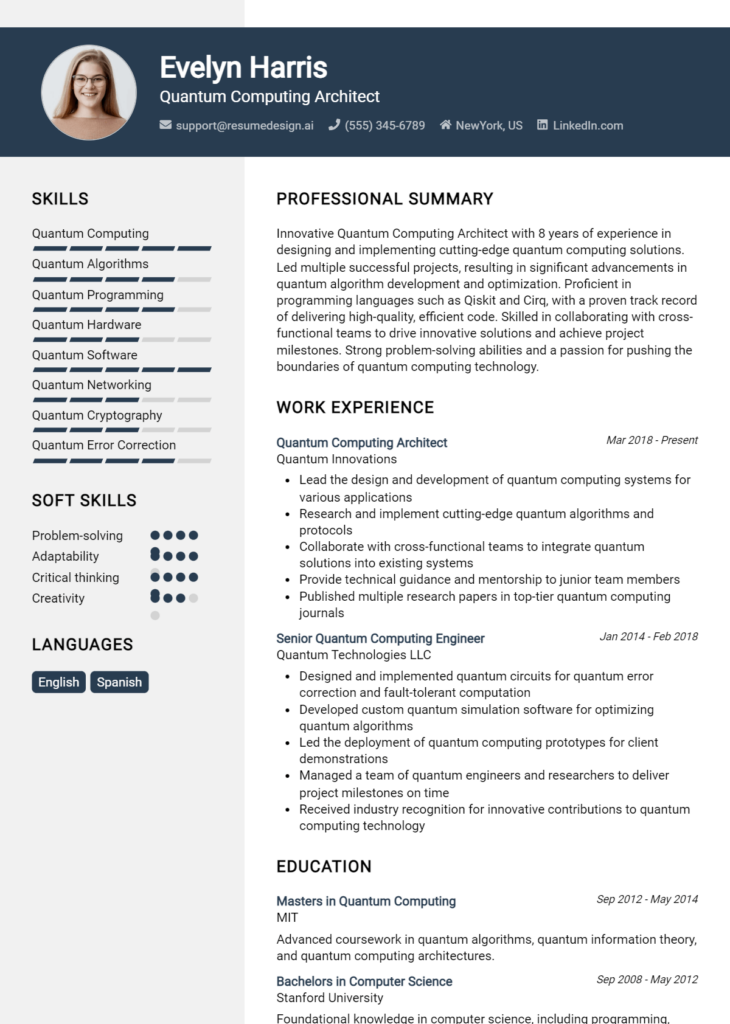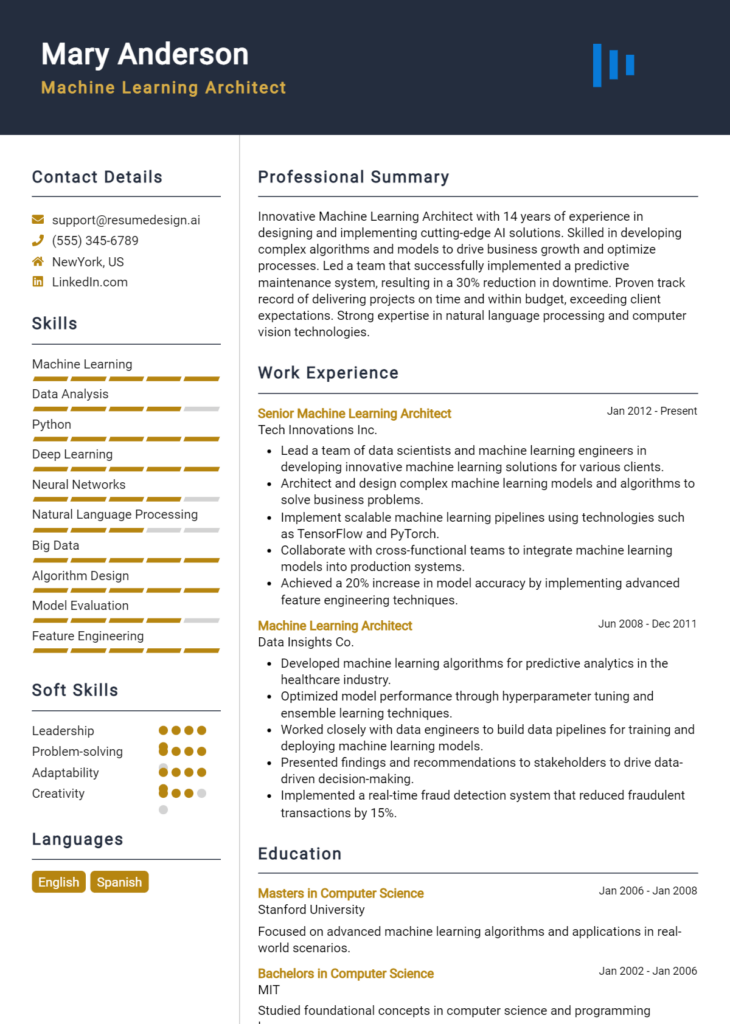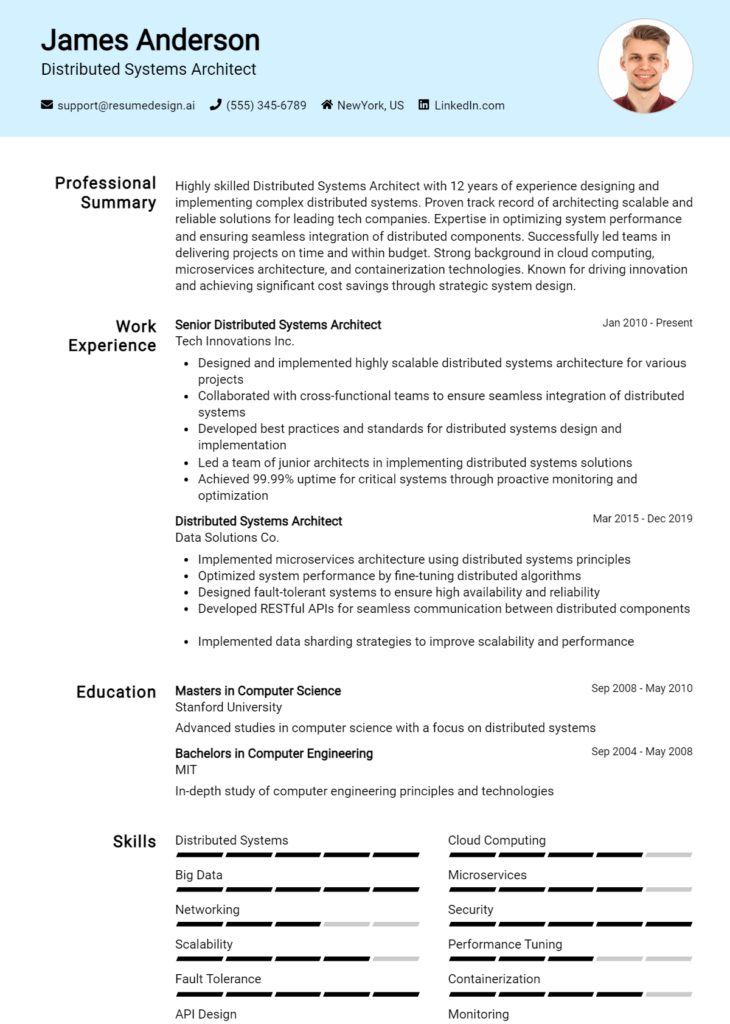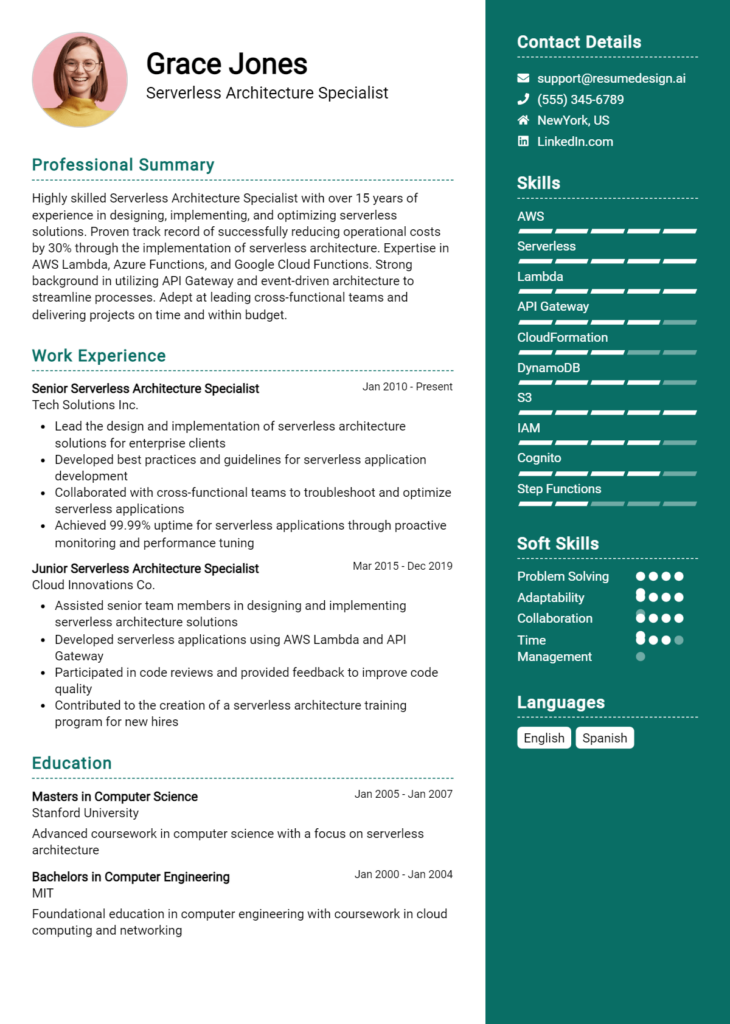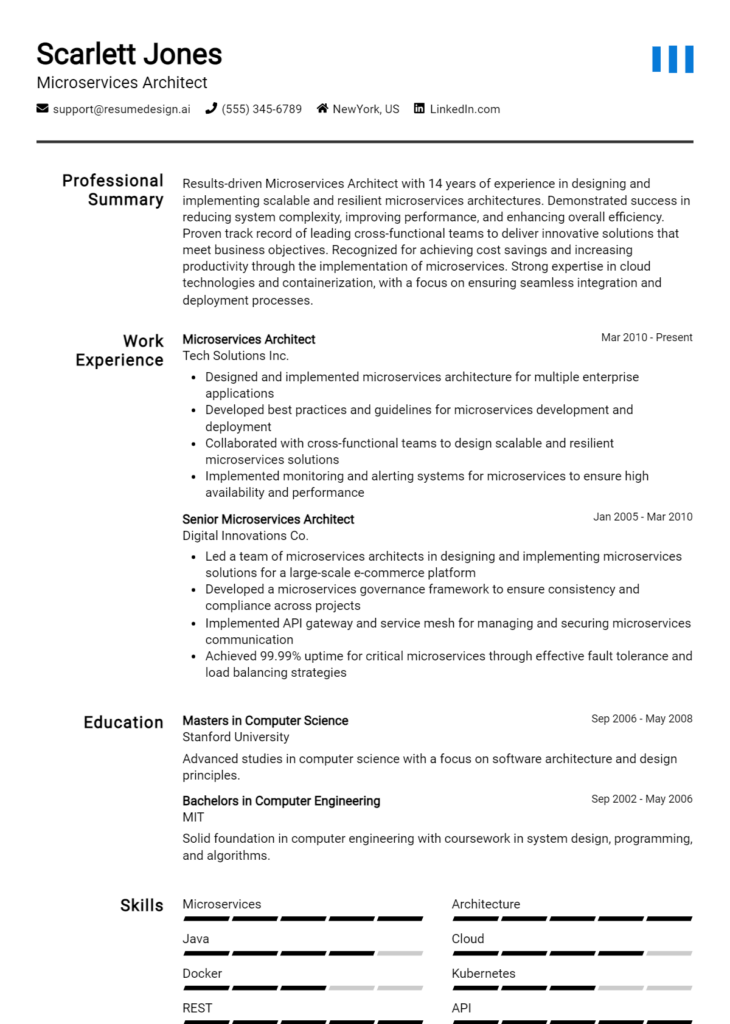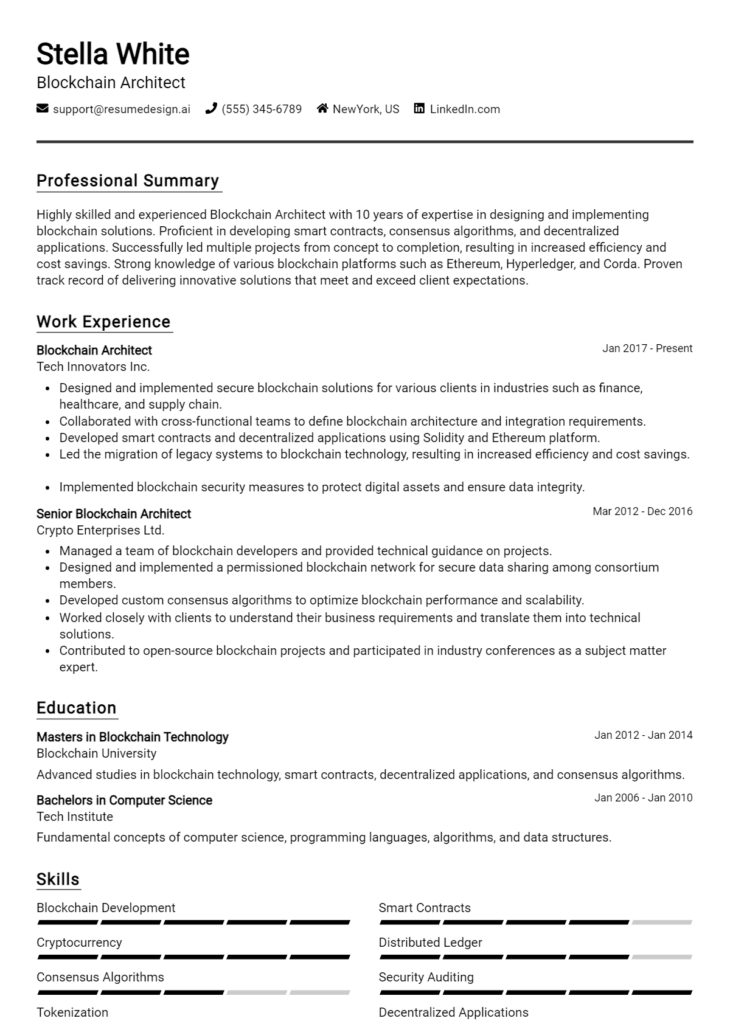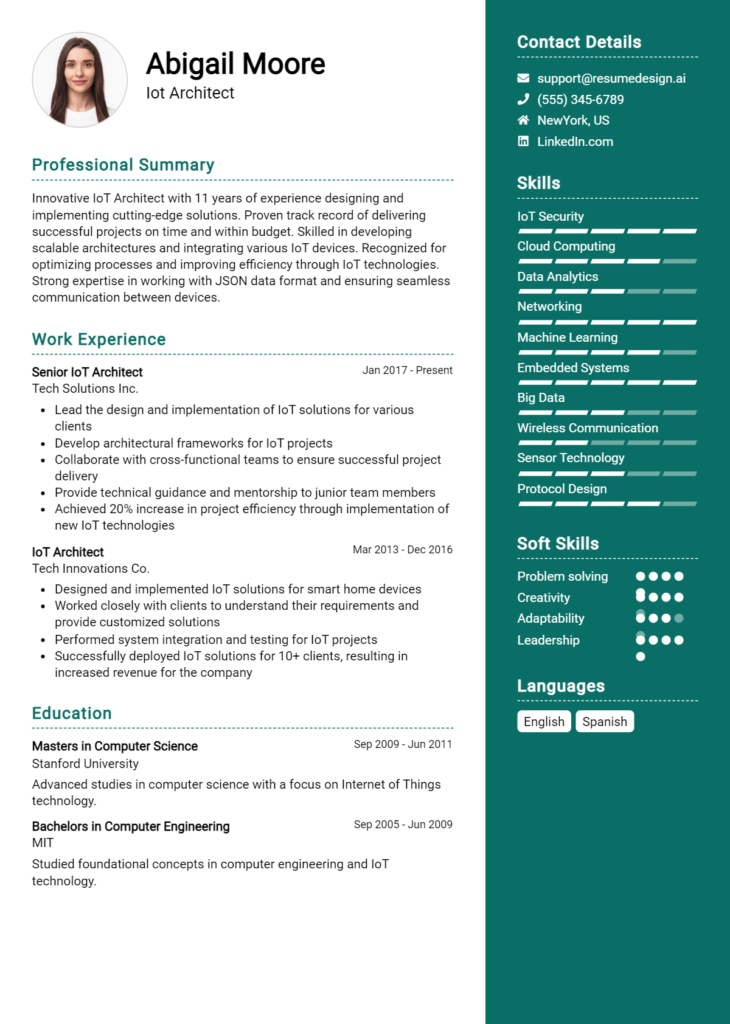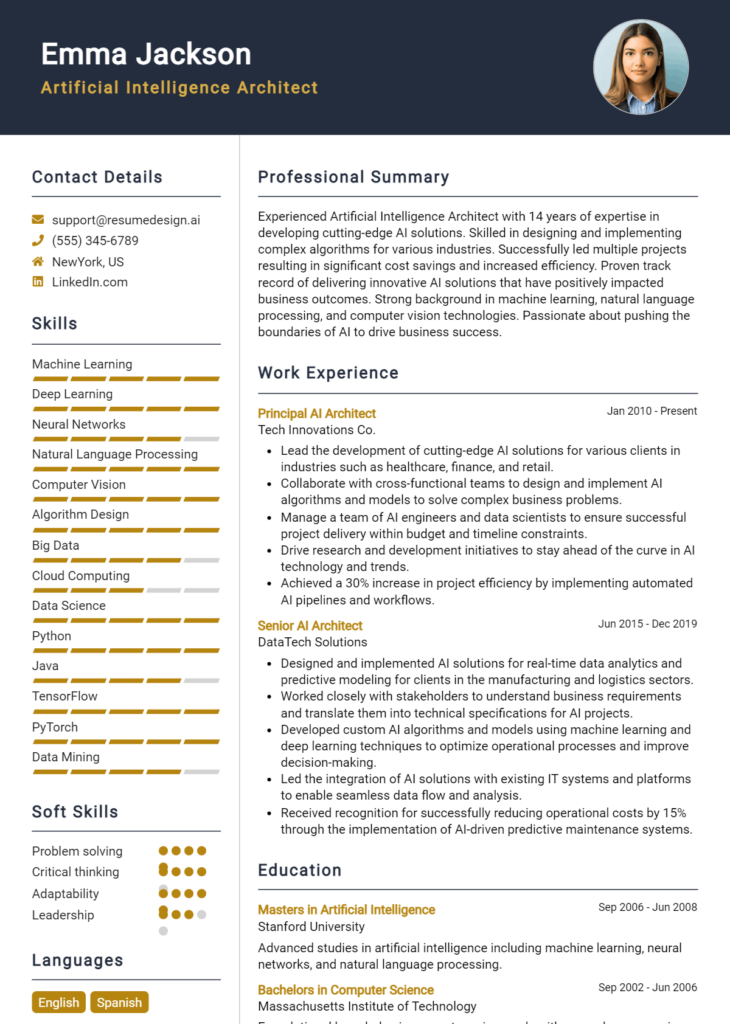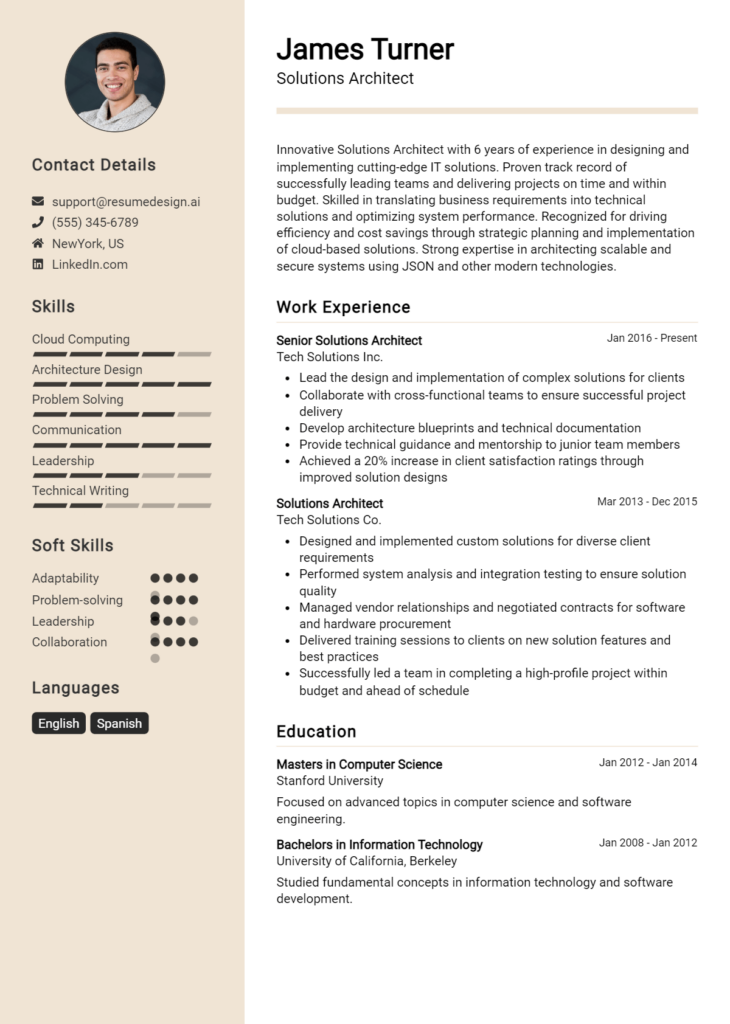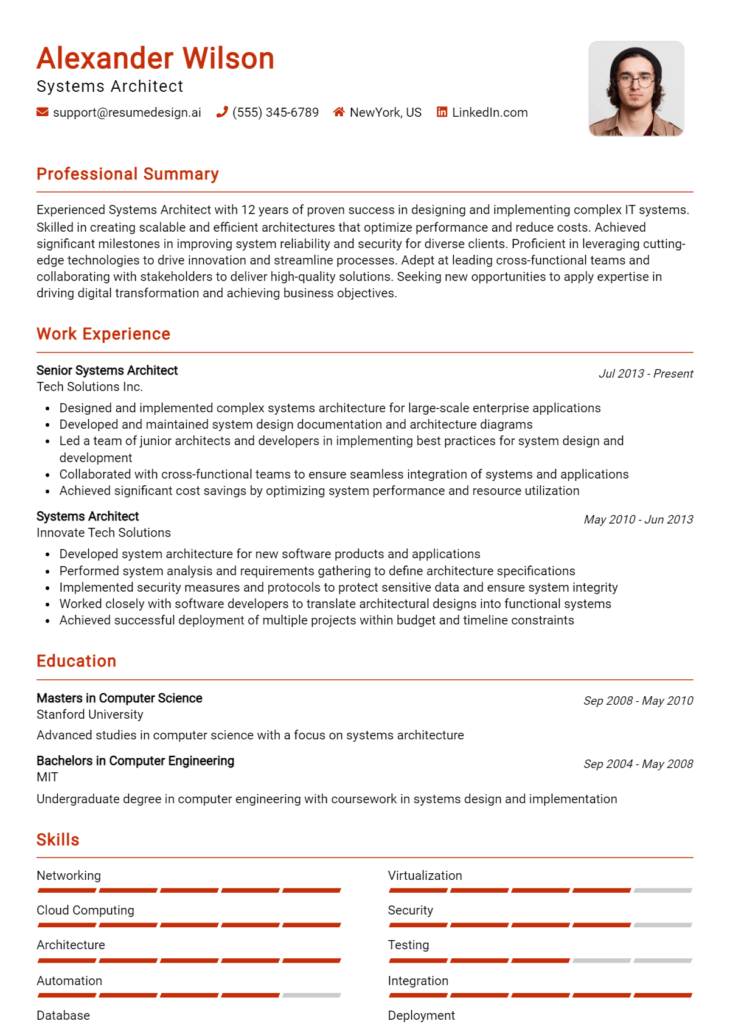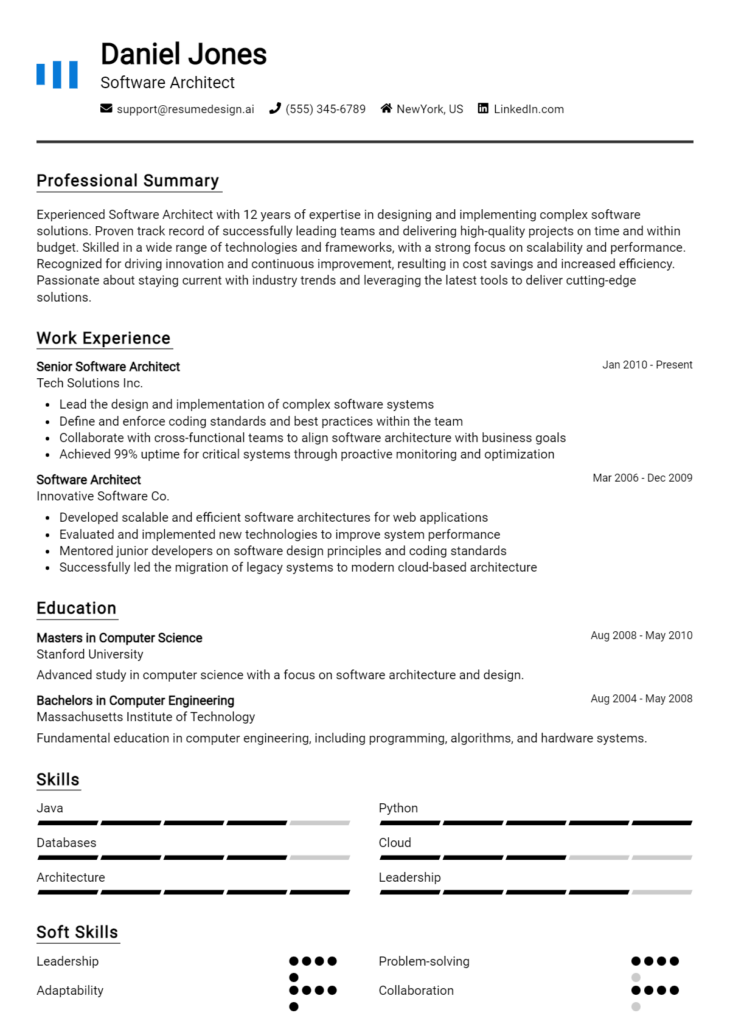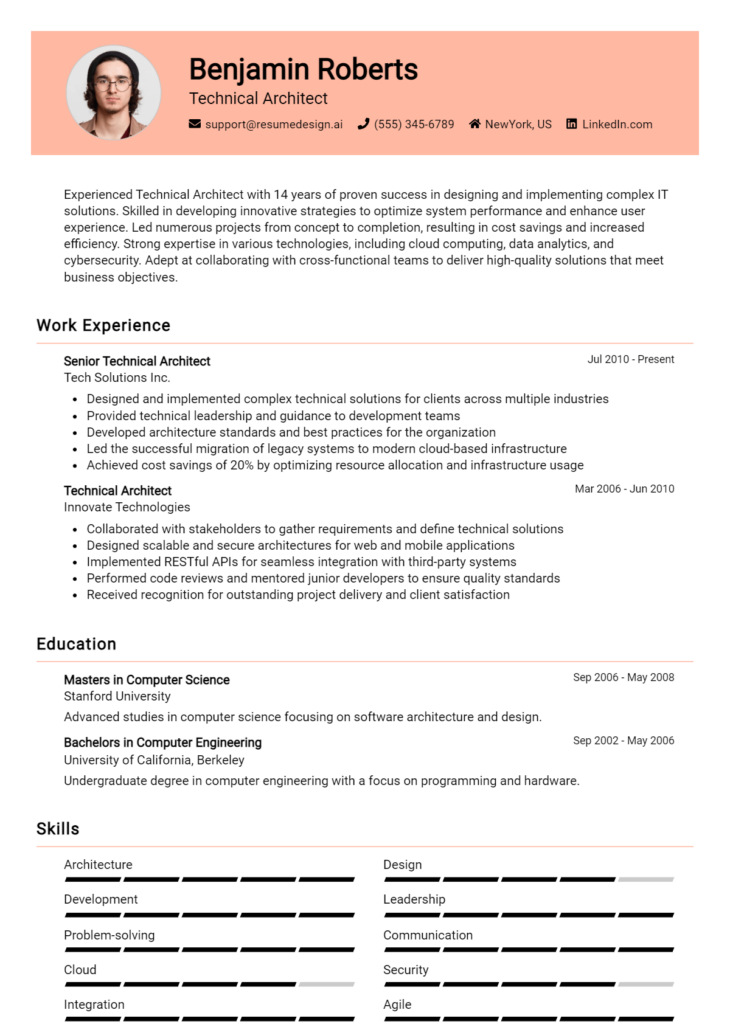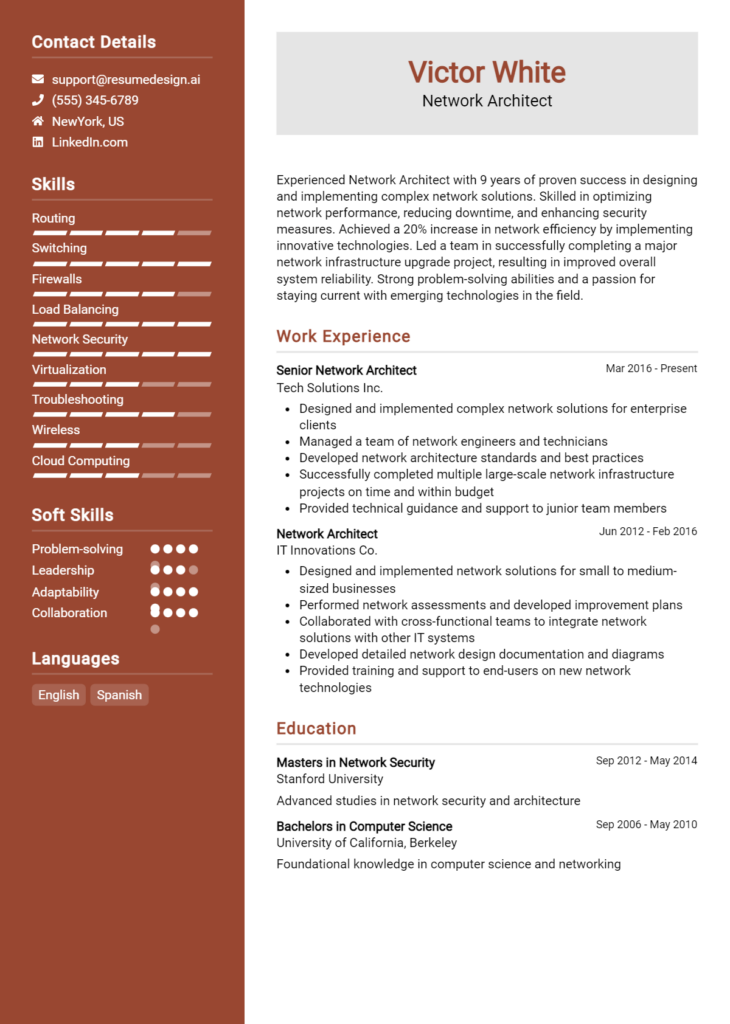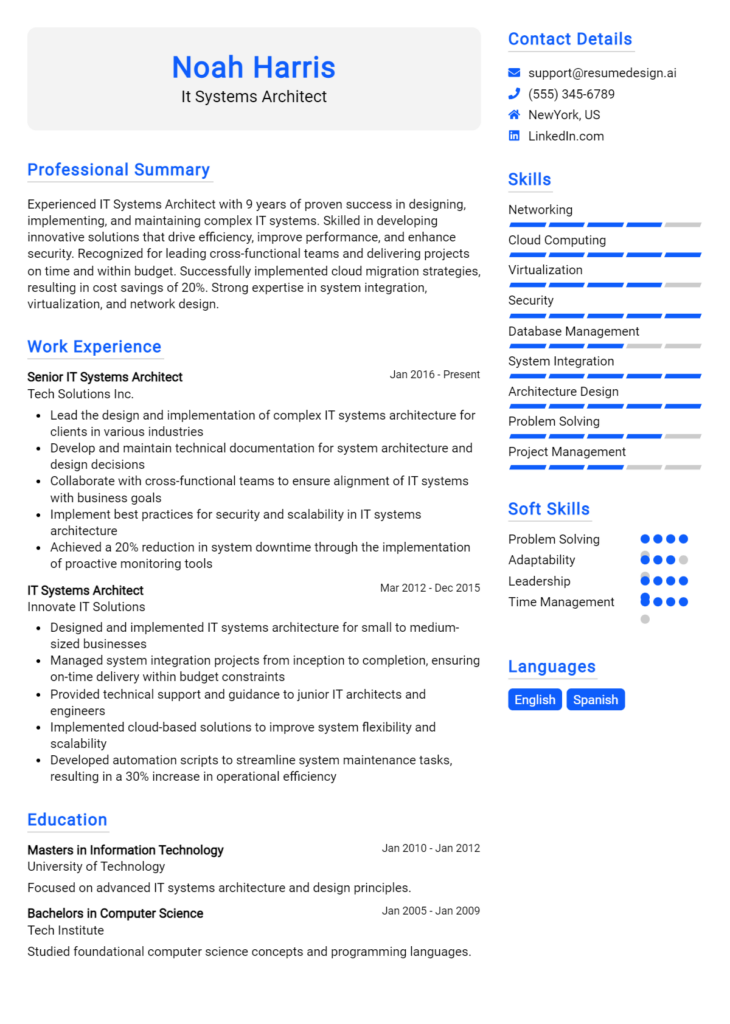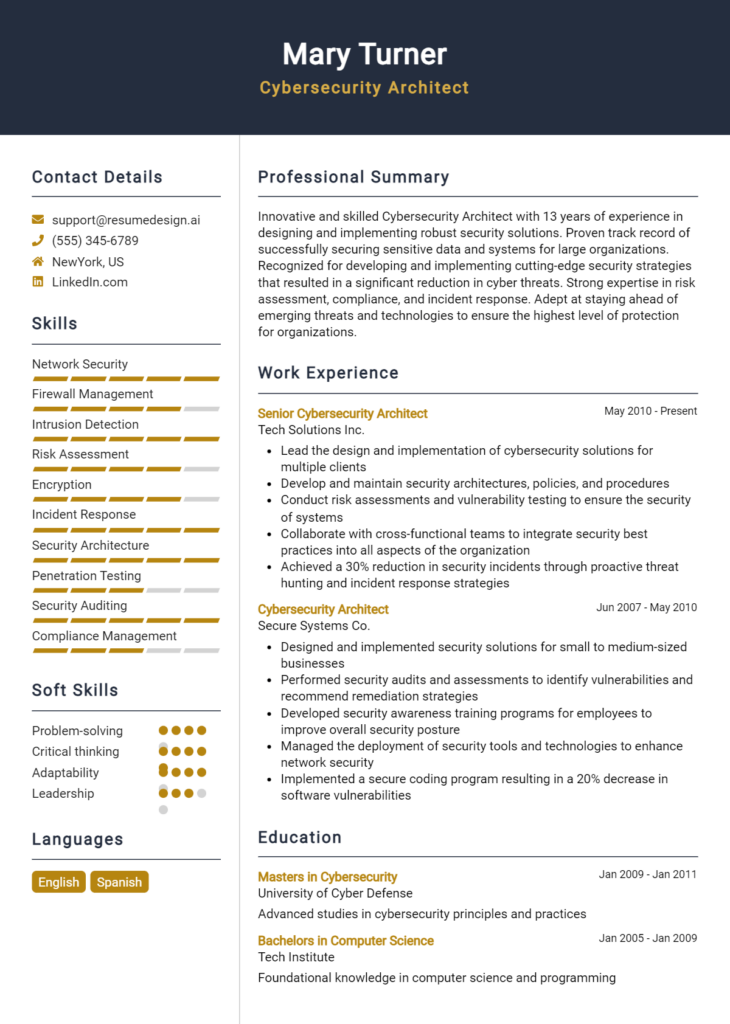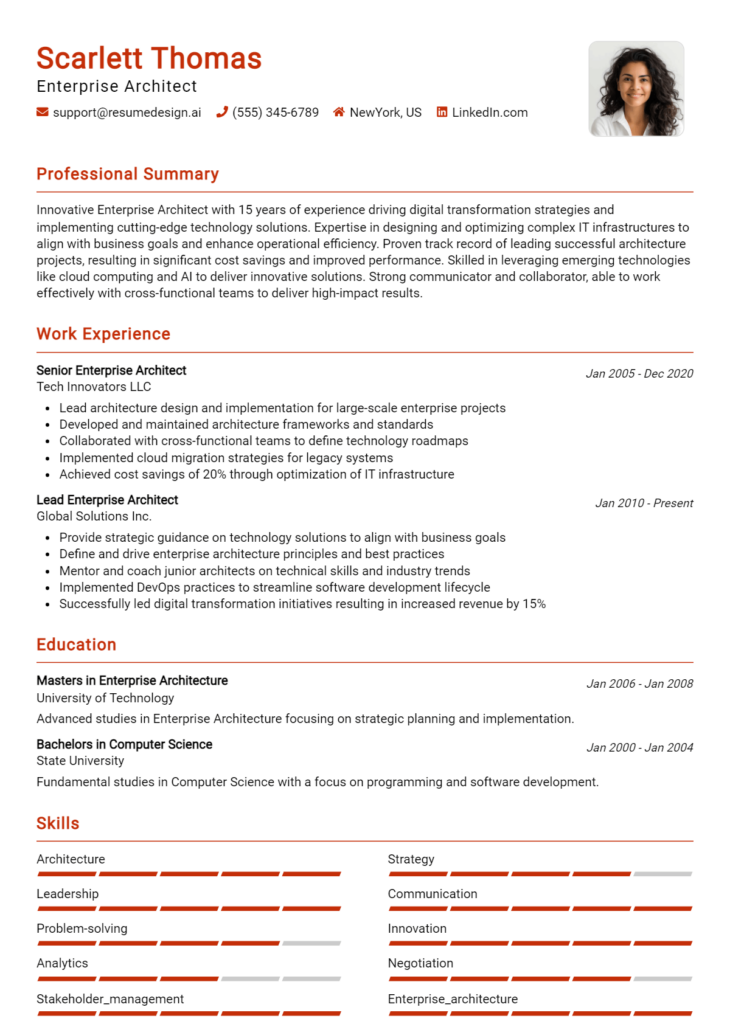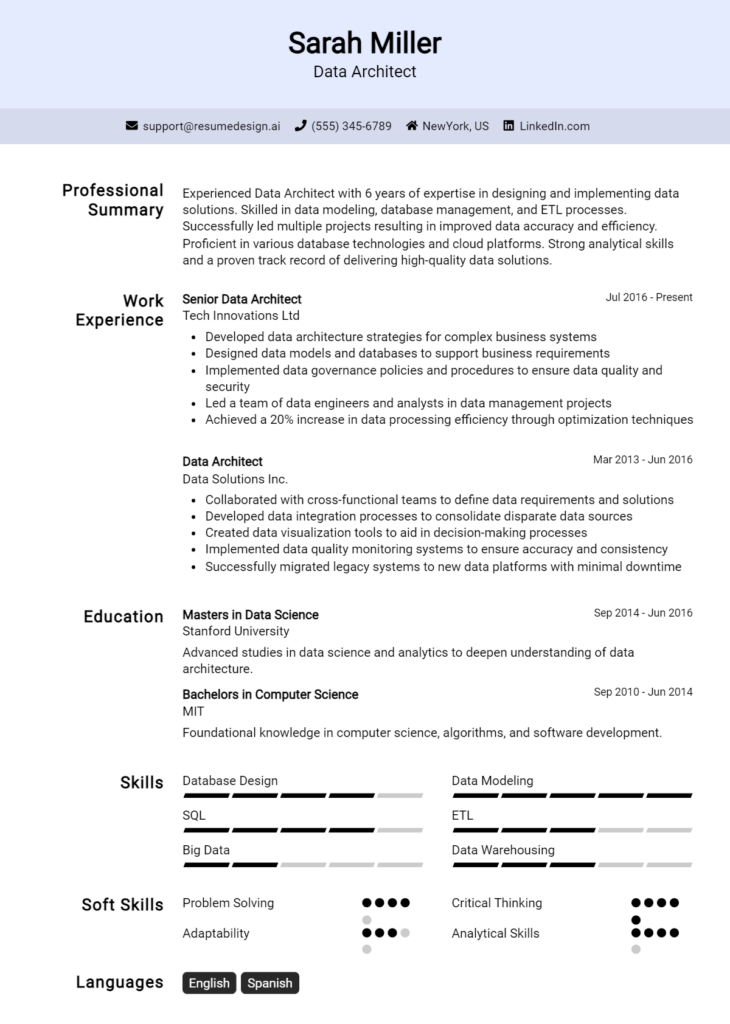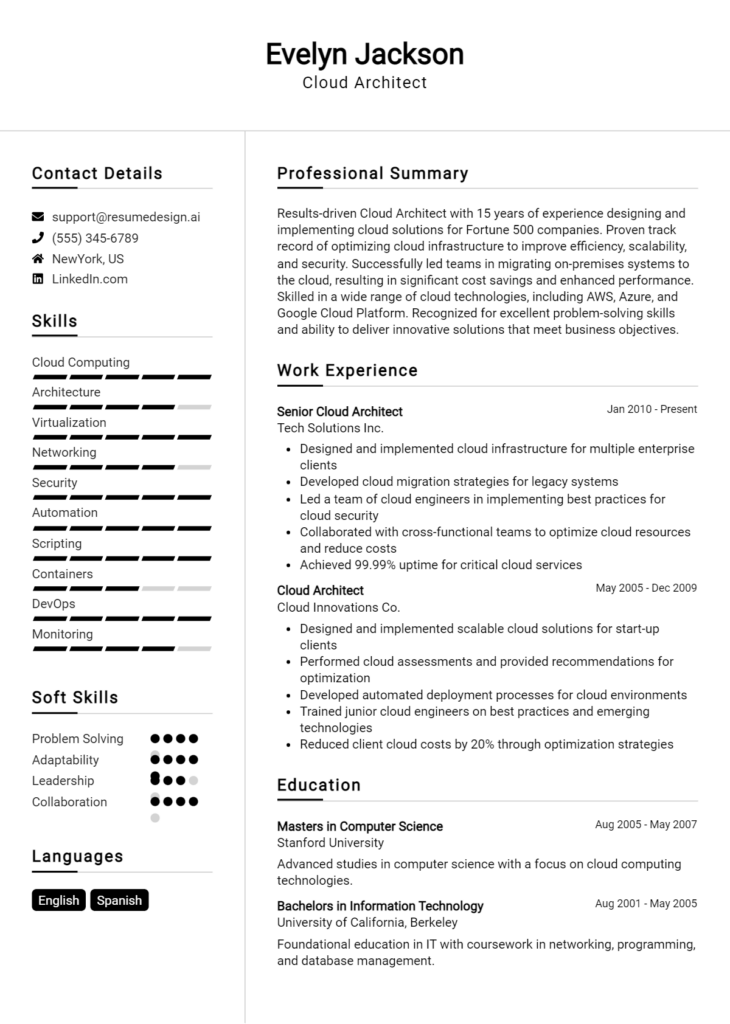DevSecOps Architect Core Responsibilities
A DevSecOps Architect plays a critical role in bridging development, security, and operations teams, ensuring that security is integrated throughout the software development lifecycle. Key responsibilities include designing secure architecture, automating security processes, and fostering a culture of collaboration across departments. Strong technical skills in cloud services, CI/CD pipelines, and security frameworks are essential, alongside excellent problem-solving abilities. A well-structured resume highlighting these competencies can significantly enhance career opportunities and align with organizational goals.
Common Responsibilities Listed on DevSecOps Architect Resume
- Design and implement secure application architectures.
- Automate security testing within CI/CD pipelines.
- Collaborate with development, operations, and security teams.
- Conduct risk assessments and vulnerability assessments.
- Develop and enforce security policies and best practices.
- Monitor and analyze security incidents and breaches.
- Implement compliance controls and regulatory requirements.
- Provide training and guidance on security practices.
- Evaluate and integrate security tools and technologies.
- Advise on secure cloud infrastructure and services.
- Continuously improve security processes and frameworks.
- Report on security metrics and overall risk posture.
High-Level Resume Tips for DevSecOps Architect Professionals
In the competitive field of DevSecOps, a well-crafted resume is crucial for professionals seeking to make a lasting impression on potential employers. Your resume often serves as the first point of contact between you and hiring managers, and it must effectively showcase your skills, achievements, and unique value proposition. A compelling resume not only highlights your technical expertise but also reflects your ability to integrate security practices within development and operations. This guide will provide practical and actionable resume tips specifically tailored for DevSecOps Architect professionals, ensuring that you stand out in a crowded job market.
Top Resume Tips for DevSecOps Architect Professionals
- Tailor your resume to the specific job description by incorporating relevant keywords and phrases that align with the role.
- Showcase your relevant experience, focusing on projects where you successfully implemented DevSecOps practices.
- Quantify your achievements with metrics and results, such as improved deployment times or reduced security incidents.
- Highlight your industry-specific skills, including knowledge of CI/CD tools, cloud platforms, and security frameworks.
- Include certifications that are pertinent to DevSecOps, such as Certified Kubernetes Administrator (CKA) or AWS Certified Solutions Architect.
- Emphasize your collaboration skills, demonstrating your ability to work effectively with cross-functional teams.
- Detail your experience with automation tools and practices that enhance security and operational efficiency.
- Use a clean and professional format, making it easy for recruiters to read and navigate your resume.
- Incorporate a summary statement that succinctly encapsulates your career goals and expertise in DevSecOps.
- Keep your resume updated with your latest skills, projects, and accomplishments to reflect your ongoing professional development.
By implementing these tips, you can significantly increase your chances of landing a job in the DevSecOps Architect field. A targeted and polished resume not only highlights your qualifications but also conveys your commitment to the role, making you a standout candidate in the eyes of potential employers.
Why Resume Headlines & Titles are Important for DevSecOps Architect
In the competitive landscape of DevSecOps, a well-crafted resume headline or title is crucial for capturing the attention of hiring managers. A strong headline serves as a powerful first impression, summarizing a candidate's key qualifications and unique value proposition in a single impactful phrase. It should be concise, relevant, and directly related to the job being applied for, allowing the hiring manager to quickly assess the applicant's fit for the role. An effective resume headline not only distinguishes a candidate from others but also sets the tone for the entire resume, making it essential for those seeking to excel in the DevSecOps field.
Best Practices for Crafting Resume Headlines for DevSecOps Architect
- Keep it concise: Aim for a headline that is brief yet informative, ideally around 10-15 words.
- Be role-specific: Tailor your headline to the specific DevSecOps Architect position you are applying for.
- Highlight key skills: Incorporate your most relevant technical and soft skills in the headline.
- Use action-oriented language: Start with strong verbs to convey a sense of achievement and proactivity.
- Include relevant certifications: Mention any critical certifications or qualifications that are pertinent to the role.
- Showcase experience: If possible, include your years of experience or notable projects in the headline.
- Avoid jargon: Use clear language that is easily understood by hiring managers and recruiters.
- Align with job descriptions: Mirror the language and keywords found in the job posting to resonate with applicant tracking systems.
Example Resume Headlines for DevSecOps Architect
Strong Resume Headlines
DevSecOps Architect with 10+ years of experience in secure cloud infrastructures and automation
Certified DevSecOps Professional specializing in CI/CD pipeline security and compliance
Innovative DevSecOps Architect focused on integrating security into Agile frameworks
Seasoned DevSecOps Expert driving security best practices across multi-cloud environments
Weak Resume Headlines
IT Professional
Experienced in DevSecOps
Looking for a DevSecOps Job
Strong headlines are effective because they immediately convey the candidate's expertise and alignment with the job requirements, making a memorable impression on hiring managers. They highlight specific skills, years of experience, and relevant certifications, which are essential in the technical landscape of DevSecOps. In contrast, weak headlines fail to impress due to their lack of specificity and relevance, often leaving hiring managers with no clear understanding of the candidate's qualifications or potential fit for the role. By avoiding vague descriptions and focusing on impactful language, candidates can significantly enhance their chances of standing out in the hiring process.
Writing an Exceptional DevSecOps Architect Resume Summary
A well-crafted resume summary is crucial for a DevSecOps Architect as it serves as the first impression for hiring managers. This brief yet impactful section highlights the candidate's key skills, relevant experience, and significant accomplishments in the field of DevSecOps. A strong summary can quickly capture attention, making it easier for recruiters to see the candidate's fit for the role. It should be concise, typically no longer than three to five sentences, and tailored specifically to the job being applied for, ensuring it resonates with the employer's needs.
Best Practices for Writing a DevSecOps Architect Resume Summary
- Be Concise: Keep your summary to 3-5 sentences to maintain clarity and impact.
- Quantify Achievements: Use numbers to highlight your accomplishments, such as percentage improvements or cost savings.
- Focus on Relevant Skills: Emphasize skills that are directly applicable to the DevSecOps role, such as cloud security, CI/CD, and automation.
- Use Action Verbs: Start sentences with strong action verbs to convey your accomplishments effectively.
- Tailor for the Job Description: Customize your summary to align with the specific requirements and keywords found in the job posting.
- Showcase Certifications: Mention relevant certifications like AWS Certified DevOps Engineer or Certified Information Systems Security Professional (CISSP).
- Highlight Team Collaboration: Include experiences that demonstrate your ability to work with development and operations teams effectively.
- Maintain Professional Tone: Use a formal and professional tone that reflects your expertise.
Example DevSecOps Architect Resume Summaries
Strong Resume Summaries
Dynamic DevSecOps Architect with over 8 years of experience in cloud security, successfully reducing security vulnerabilities by 40% within the first year of implementation. Expert in CI/CD pipelines using Jenkins and Docker, leading to a 30% increase in deployment efficiency.
Results-driven DevSecOps professional with a proven track record of integrating security into the software development lifecycle, achieving a 50% reduction in security incidents during my tenure at XYZ Corp. Proficient in AWS, Kubernetes, and Terraform, with a strong focus on automation and compliance.
Innovative DevSecOps Architect with 10+ years of experience, specializing in automated security testing and cloud infrastructure. Led a cross-functional team that decreased deployment times by 25% while enhancing security posture through rigorous compliance checks.
Weak Resume Summaries
Experienced IT professional with a background in DevSecOps looking for a new opportunity. Knowledgeable in various technologies and methodologies.
DevSecOps Architect with experience in security and development processes. I am eager to contribute to a team and improve operations.
The strong resume summaries stand out because they provide specific details, quantify achievements, and demonstrate direct relevance to the role of a DevSecOps Architect. They showcase the candidate's expertise, accomplishments, and ability to drive results in a clear and compelling manner. In contrast, the weak summaries lack detail and specificity, making them too vague and generic to capture the interest of hiring managers effectively.
Work Experience Section for DevSecOps Architect Resume
The work experience section of a DevSecOps Architect resume is crucial as it serves as a reflection of the candidate's technical skills, leadership abilities, and capacity to deliver high-quality products. This section not only showcases the candidate's hands-on experience with security integration in the software development lifecycle but also highlights their proficiency in managing teams and projects effectively. By quantifying achievements and aligning their experience with industry standards, candidates can make a compelling case for their qualifications, demonstrating their value to potential employers.
Best Practices for DevSecOps Architect Work Experience
- Highlight specific technical skills relevant to DevSecOps, such as cloud security, CI/CD pipeline integration, and automated testing.
- Quantify achievements with metrics, such as percentage improvements in deployment times or reductions in security incidents.
- Showcase leadership by detailing team management experiences, including mentoring or guiding junior developers.
- Emphasize collaboration across departments, illustrating how cross-functional teamwork led to successful project outcomes.
- Use industry-standard terminology to show familiarity with current best practices and frameworks in DevSecOps.
- Include examples of successful risk management strategies implemented during project lifecycles.
- Outline experiences with specific tools and technologies that are widely recognized in the DevSecOps field.
- Demonstrate a commitment to continuous improvement by mentioning relevant certifications or ongoing education in security and development practices.
Example Work Experiences for DevSecOps Architect
Strong Experiences
- Led a team of 10 engineers to implement a CI/CD pipeline that decreased deployment times by 40% while enhancing security compliance across all releases.
- Developed and executed a comprehensive security training program for developers, resulting in a 30% reduction in security-related issues over six months.
- Collaborated with cross-functional teams to integrate security tools into the development workflow, improving vulnerability detection rates by 50%.
- Successfully managed the transition to a cloud-based infrastructure, which improved system scalability by 60% and reduced operational costs by 25%.
Weak Experiences
- Worked on several projects involving security measures.
- Participated in team meetings to discuss DevSecOps strategies.
- Assisted in the development of software applications with some security considerations.
- Contributed to various tasks related to system optimization.
The examples listed as strong experiences are considered impactful because they provide clear, quantifiable outcomes and demonstrate substantial technical leadership and collaboration. They effectively convey the candidate's ability to drive measurable improvements in DevSecOps practices. In contrast, the weak experiences lack specificity and fail to illustrate significant contributions or achievements, making it difficult for potential employers to gauge the candidate's true value and expertise in the field.
Education and Certifications Section for DevSecOps Architect Resume
The education and certifications section of a DevSecOps Architect resume is crucial as it serves as a testament to a candidate's academic foundation and professional expertise in the field. This section not only showcases the individual's formal education but also emphasizes their commitment to continuous learning through industry-relevant certifications and specialized training. By detailing relevant coursework, recognized credentials, and ongoing professional development, candidates can significantly enhance their credibility and demonstrate alignment with the demands of the DevSecOps role.
Best Practices for DevSecOps Architect Education and Certifications
- Prioritize relevant degrees in Computer Science, Cybersecurity, or Information Technology.
- Include industry-recognized certifications such as AWS Certified DevOps Engineer, Certified Ethical Hacker (CEH), or DevSecOps Foundation certification.
- Highlight any specialized training in security automation, continuous integration/continuous deployment (CI/CD), and compliance frameworks.
- Provide specific coursework that directly relates to DevSecOps practices, security protocols, and cloud infrastructure.
- Keep certification dates and renewals current to showcase ongoing professional development.
- Group certifications by relevance to the DevSecOps role to enhance clarity and impact.
- Use clear and concise language to describe educational achievements and certifications.
- Tailor the education and certifications section to the job description, emphasizing the most pertinent qualifications.
Example Education and Certifications for DevSecOps Architect
Strong Examples
- Bachelor of Science in Computer Science, University of Technology (2015)
- AWS Certified DevOps Engineer - Professional (2022)
- Certified Kubernetes Administrator (CKA) (2021)
- DevSecOps Foundation Certification (2023)
Weak Examples
- Associate Degree in Fine Arts (2010)
- CompTIA A+ Certification (2015) - outdated for DevSecOps roles
- Microsoft Office Specialist Certification (2018)
- Certification in Basic HTML and CSS (2019)
The examples provided are categorized as strong or weak based on their relevance and alignment with the DevSecOps Architect role. Strong examples showcase degrees and certifications that are directly applicable to DevSecOps practices, indicating a robust understanding of the necessary technologies and methodologies. In contrast, weak examples highlight qualifications that are either irrelevant to the field or outdated, failing to demonstrate the candidate's preparedness for the current demands of a DevSecOps Architect position. By focusing on strong examples, candidates can present themselves as well-qualified and knowledgeable professionals in the industry.
Top Skills & Keywords for DevSecOps Architect Resume
The role of a DevSecOps Architect is critical in today's fast-paced digital landscape, where security must be integrated into every phase of the software development lifecycle. An effective resume for this position should highlight a blend of both hard and soft skills that demonstrate a candidate's ability to bridge the gap between development, security, and operations. Having the right skills not only showcases a candidate's technical expertise but also their capability to lead cross-functional teams, communicate effectively, and drive a culture of security awareness. Crafting a well-rounded resume that emphasizes these skills can significantly enhance a candidate's appeal to potential employers.
Top Hard & Soft Skills for DevSecOps Architect
Soft Skills
- Strong communication skills
- Leadership and team management
- Problem-solving ability
- Collaboration and teamwork
- Adaptability and flexibility
- Critical thinking
- Conflict resolution
- Time management
- Creativity and innovation
- Attention to detail
Hard Skills
- Proficiency in CI/CD tools (Jenkins, GitLab, etc.)
- Knowledge of cloud platforms (AWS, Azure, Google Cloud)
- Experience with containerization (Docker, Kubernetes)
- Understanding of security frameworks (NIST, OWASP, ISO 27001)
- Familiarity with infrastructure as code (Terraform, Ansible)
- Coding skills in languages like Python, Bash, or Go
- Experience with vulnerability assessment tools (Nessus, Burp Suite)
- Knowledge of configuration management tools (Chef, Puppet)
- Understanding of network security principles
- Proficiency in monitoring and logging tools (Prometheus, ELK Stack)
By combining these essential skills with relevant work experience, candidates can create a compelling resume that stands out in the competitive job market for DevSecOps Architects.
Stand Out with a Winning DevSecOps Architect Cover Letter
I am writing to express my interest in the DevSecOps Architect position at [Company Name], as advertised on [Job Board/Company Website]. With over [X years] of comprehensive experience in software development, security practices, and operations, I am excited about the opportunity to contribute to your team by integrating security into every phase of the software development lifecycle. My expertise in cloud platforms, CI/CD pipelines, and security automation aligns perfectly with your mission to deliver secure and efficient software solutions.
Throughout my career, I have successfully led initiatives that promote a culture of security-first thinking among development and operations teams. At [Previous Company Name], I spearheaded the implementation of a comprehensive DevSecOps framework that reduced vulnerabilities by [X%] and enhanced the overall security posture of our applications. By introducing automated security testing tools into our CI/CD pipelines, I ensured that security was not an afterthought but an integral part of the development process. My ability to collaborate and communicate effectively with cross-functional teams has been crucial in fostering a cooperative environment where security is seen as everyone’s responsibility.
I am particularly drawn to [Company Name] because of your commitment to innovation and excellence in the field of [specific area or project related to the company]. I admire your proactive approach to security and your investment in modern technologies, which I believe is essential for keeping pace with today’s evolving threat landscape. I am eager to bring my background in threat modeling, vulnerability management, and compliance to your team, ensuring that we not only meet industry standards but set new benchmarks for security practices within the organization.
Thank you for considering my application. I am looking forward to the opportunity to discuss how my skills and experiences align with the goals of [Company Name]. I am excited about the possibility of contributing to your team and helping to create a robust security framework that supports your innovative projects. Please feel free to contact me at [Your Phone Number] or [Your Email Address] to schedule a discussion at your convenience.
Common Mistakes to Avoid in a DevSecOps Architect Resume
When crafting a resume for the role of a DevSecOps Architect, it's crucial to highlight relevant skills and experiences that showcase your ability to integrate security practices within the DevOps process. However, many candidates make critical errors that can hinder their chances of landing an interview. By avoiding these common mistakes, you can create a more compelling resume that effectively communicates your qualifications.
Vague Job Descriptions: Using generic terms like "worked on security" instead of specifying the technologies and methodologies employed can diminish the impact of your experience.
Overlooking Soft Skills: Focusing solely on technical competencies without mentioning essential soft skills such as communication, collaboration, and problem-solving can make your profile less appealing.
Neglecting Certifications: Failing to list relevant certifications like CISSP, CISM, or specific DevSecOps training can lead to missed opportunities, as employers often look for validated expertise.
Ignoring Metrics and Achievements: Not quantifying your contributions, such as "reduced security incidents by 30%," can weaken your achievements and make it harder for employers to assess your impact.
Poor Formatting: A cluttered or overly complex layout can distract from your qualifications. Ensure your resume is easy to read with clear headings and bullet points.
Lack of Tailoring: Sending a generic resume for every application can be detrimental. Tailor your resume to each job description to reflect the specific skills and experiences that match the role.
Forgetting to Update: Not keeping your resume current with the latest technologies and practices in the rapidly evolving DevSecOps landscape can render your application outdated.
Excessive Jargon: While industry terminology is important, overloading your resume with acronyms and technical jargon can alienate hiring managers who may not be familiar with all terms. Aim for clarity and accessibility.
Conclusion
In summary, the role of a DevSecOps Architect is critical in today's software development lifecycle, emphasizing the integration of security practices within the DevOps framework. Key responsibilities include designing secure architectures, automating security processes, and fostering collaboration between development, operations, and security teams. As organizations increasingly prioritize security, the demand for skilled professionals in this role is on the rise.
To ensure you stand out in this competitive job market, it’s essential to have a polished and impactful resume. We encourage you to take the time to review and update your DevSecOps Architect resume to highlight your skills and experiences effectively. Utilize tools such as resume templates, which can provide a solid foundation for your resume's layout. Consider leveraging the resume builder to create a professional-looking resume quickly and easily. Additionally, explore resume examples to gain inspiration and see what works best for showcasing your qualifications. Don't forget about the importance of a compelling introduction; check out our cover letter templates to complement your resume.
Take action now to enhance your career prospects by refining your resume and preparing for your next opportunity as a DevSecOps Architect!

